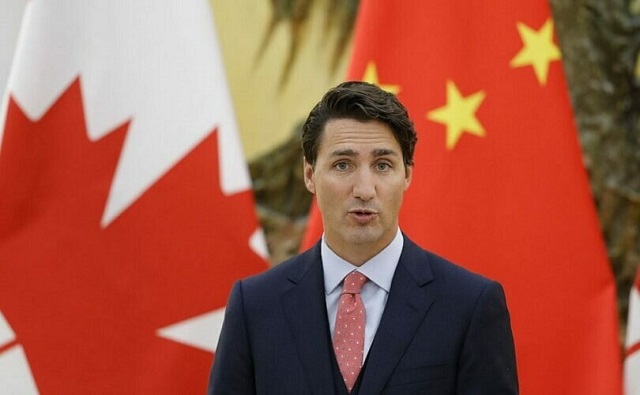Alberta
New opinion surveys reveal overwhelming majority of Canadians support our Oil and Gas industry
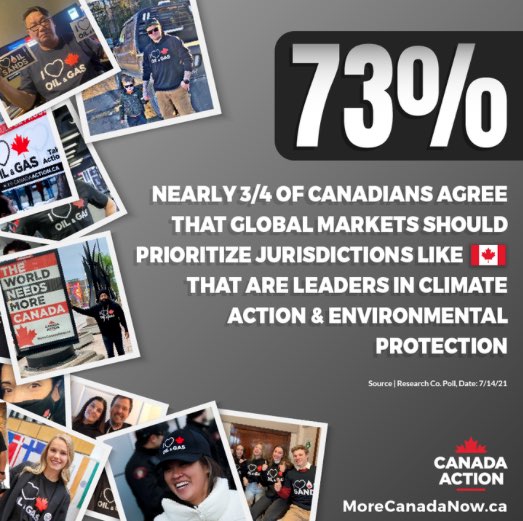
News Release from Canada Action
We are very excited to share some recent and encouraging polling results today. According to a July 2021 public opinion survey conducted by Research Co, new data shows that Canada’s public perception of our responsible energy industry is very positive.
Here are some of the key findings:
- Almost three in four (73 percent) Canadians polled agree Canada should be a preferred global supplier of energy because of its climate and environmental record.
- Nearly seven in ten (69 percent) say they have personally benefited from the oil and gas sector.
- 70 percent agree that resource development could help alleviate systemic poverty within Indigenous communities.
- Two thirds of Canadians (66 percent) support Canada’s role as a global oil and gas supplier.
- Almost three in four Canadians (73 percent) acknowledge Canada’s prosperity is supported by the oil and gas sector and that Canadian oil and gas production helps fund important social programs like health care and education.
Referring to the fact 73 percent of Canadians polled also agreed it’s essential First Nations be included in project development to establish long-term revenue sources for their communities, JP Gladu, acting Executive Director of Indigenous Resource Network, noted the following:
Taken collectively, this is all exceptional news for all of Canada’s natural resource industries. Your support for our positive, fact based message about why the world needs more Canadian energy and resources is helping make a difference.
A Majority of Canadians ‘Agree’ that Canada Should be a Preferred Global Supplier of Energy: POLL

A new public opinion survey conducted by Research Co. on behalf of Canada Action has found that a majority of Canadians across the country support the vital oil and gas sector! The poll, released on July 14th, showed that 68% of participants ‘agree’ that Canada should be the choice supplier to meet future oil and gas demand, while two-thirds (66%) support Canada’s role as a global oil and gas supplier versus just 19% who were opposed.
Additionally, almost three in four Canadians (73%) acknowledged Canada’s prosperity is supported by the oil and gas sector and that the industry helps fund important social programs such as healthcare and education.
“It’s a strong and very welcome result, and one that shows most Canadians feel proud of the work their energy sector is doing to enhance its record on ESG criteria. The results also show most Canadians believe the world needs more Canadian energy and are aware of the importance of the sector to the prosperity of families and communities right across the country,” said Cody Battershill, Canada Action founder.

Between 2000 and 2018, approximately $493 billion in government revenues were generated by Canada’s oil and gas industry, capital which has been used pay for schools, hospitals, roads and the workers that make these projects possible/operational. Every Canadian has benefitted from oil and gas in some way, shape, or form; nearly seven-in-ten Canadians (69%) of participants also acknowledged that Canada’s oil and gas sector has benefitted them personally.
Nearly three-in-four Canadians (73%) also agreed that global markets should prioritize jurisdictions like Canada that are leaders in climate action and environmental protection. This is a logical choice as Canada’s oil and gas industry ranks number one for Environmental, Social, and Governance (ESG) practices among nations with the largest oil reserves, and of the world’s top 20 producers, 2nd for governance and social progress and 4th on the environment.
“Given the world requires $525 billion of new oil and gas investment per year just to meet current demand, we think we ought to push for Canada to receive a sizeable share of this investment,” Battershill added.

Canada’s world-class ESG performance shows that our nation is home to one of the most environmentally conscious and sustainable oil and gas industries in the world. With future supply gaps on the horizon, it only makes sense that ESG-focussed investors look to Canada as a choice supplier for as long as the world needs oil – and it will for many decades to come.
73% of participants also agreed that it’s essential First Nations be included in project development to establish long-term revenue sources for their communities.
“These are heartening results. Indigenous nations and businesses want to be partners in resource development. This poll shows there’s widespread support to work together for the benefit of all,” said JP Gladu, acting Executive Director of the Indigenous Resource Network.
Below is a summary of all poll results collected by Research Co.
Poll Results:

– Two-thirds of Canadians (66%) support Canada’s role as a global oil and gas supplier, while one-in-five (19%) are opposed
– Almost seven-in-ten Canadians (69%) say the oil and gas industry has benefitted them personally
– Almost three-in-four Canadians (73%) agree that global markets should prioritize jurisdictions like Canada that are leaders in climate action and environmental protection
– Almost three-in-four Canadians (73%) agree that Canadian oil and gas products help fund important social programs like healthcare and education for Canadians
– More than seven-in-ten Canadians (72%) agree that sustainability measures are better served when energy is sourced from Canada compared to less environmentally friendly jurisdictions

– Seven-in-ten Canadians (70%) agree that Canada should be the choice recipient of investments due to its climate leadership and environmental policies
– More than two-thirds of Canadians (68%) agree that Canada should be the choice supplier to meet future oil and gas demand
– Over three-in-five Canadians (64%) agree that investing in Canada’s oil and gas sector makes sense if you value climate leadership, social progress and transparency
– Fewer than half of Canadians (45%) were aware that Canada is a leader for environmental, social and governance (ESG) practices among countries with the largest oil and gas reserves
– More than two-in-five Canadians (43%) were aware that Canadian energy companies are global leaders in carbon capture, utilization and storage

– Just over two-in-five Canadians (41%) were aware that Canadian natural gas exported to Asia can reduce global emissions by displacing coal power usage
– Almost three-in-four Canadians (73%) agree that global markets should prioritize jurisdictions like Canada that are leaders in climate leadership and environmental protection
– Almost three-in-four Canadians (73%) agree that Canada should be a destination of choice for energy investment due to its climate leadership, worker safety and environmental policies
– More than two-thirds of Canadians (68%) agree that Canada should be the choice supplier to meet future oil and gas demand
– Almost three-in-four Canadians (74%) think Canada should act in a similar fashion to Norway when it comes to energy practices, as the nation has said they will continue to maximize the value created from their oil and gas reserves

– Almost three-in-four Canadians (73%) agree that Canada’s prosperity is supported by the oil and gas sector practices
– Almost three-in-four Canadians (73%) agree that it is essential that First Nations be included in project development to establish long-term revenue sources for their communities
– Seven-in-ten Canadians (70%) agree that Systemic poverty within Indigenous communities could be alleviated with resource development
– Almost seven-in-ten Canadians (69%) agree that Indigenous and non-Indigenous communities in Canada should play a role in supplying our energy to meet domestic and global demands
– More than half of Canadians (56%) agree with the decision related to the TMX expansion, while one-in-five (21%) disagree, and a similar proportion (22%) are undecided. Support for the decision is highest in Alberta and Atlantic Canada (each at 63%), followed by Ontario (57%), Saskatchewan and Manitoba (56%), British Columbia (55%) and Quebec (52%)
– Over three-in-five Canadians (62%) think the Indigenous communities support the Trans Mountain Pipeline (TMX) project
– More than three-in-ten Canadians (31%) are more likely to support the Trans Mountain expansion upon learning of the views of Indigenous communities, while 7% are less likely to support. More than two-in-five (47%) say their position has not changed as a result of this fact
Results were based on an online study among 1,000 adults in Canada, conducted July 7 to 9, 2021 and weighted for age, gender and region. The margin of error—which measures sample variability—is +/- 3.1 percentage points, nineteen times out of twenty.
Join Us Today!
Learn more about Canada’s sustainable energy industry by joining us on Facebook, Twitter, and Instagram today – hope to see you there!
Back to Energy – Canada Action
Alberta
Coutts Three verdict: A warning to protestors who act as liaison with police

From the Frontier Centre for Public Policy
By Ray McGinnis
During the trial numbers of RCMP officers conceded that the Coutts Three were helpful in their interactions with the law. As well, there didn’t seem to be any truth to the suggestion that Van Huigenbos, Van Herk and Janzen were leaders of the protest.
Twelve jurors have found the Coutts Three guilty of mischief over $5,000 at a courthouse in Lethbridge, Alberta. Marco Van Huigenbois, Alex Van Herk and George Janzen will appear again in court on July 22 for sentencing.
Van Huigenbois, Van Herk and Janzen were each protesting at the Coutts Blockade in 2022. A blockade of Alberta Highway 4 began on January 29, 2022, blocking traffic, on and off, on Alberta Highway 4 near the Coutts-Sweetgrass Canada-USA border crossing. The protests were in support of the Freedom Convoy protests in Ottawa.
Protests began due to the vaccine mandates for truckers entering Canada, and lockdowns that bankrupted 120,000 small businesses. Government edicts were purportedly for “public health” to stop the spread of the C-19 virus. Yet the CDC’s Dr. Rachel Wallensky admitted on CNN in August 2021 the vaccine did not prevent infection or stop transmission.
By February 2022, a US court forced Pfizer to release its “Cumulative Analysis of Post-Authorization Adverse Event Reports” revealing the company knew by the end of February, 2021, that 1,223 people had a “case outcome” of “fatal” as a result of taking the companies’ vaccine.
On the day of February 14, 2022, the three men spoke to Coutts protesters after a cache of weapons had been displayed by the RCMP. These were in connection with the arrest of the Coutts Four. Van Huigenbos and others persuaded the protesters to leave Coutts, which they did by February 15, 2022.
During the trial numbers of RCMP officers conceded that the Coutts Three were helpful in their interactions with the law. As well, there didn’t seem to be any truth to the suggestion that Van Huigenbos, Van Herk and Janzen were leaders of the protest.
RCMP officer Greg Tulloch testified that there were a number of “factions” within the larger protest group. These factions had strong disagreements about how to proceed with the protest. The Crown contended the Coutts Three were the leaders of the protest.
During his testimony, Tulloch recalled how Van Huigenbos and Janzen assisted him in getting past the “vehicle blockade to enter Coutts at a time during the protest when access to Coutts from the north via the AB-4 highway was blocked.” Tulloch also testified that Janzen and Van Huigenbos helped with handling RCMP negotiations with the protesters. Tulloch gave credit to these two “being able to help move vehicles at times to open lanes on the AB-4 highway to facilitate the flow of traffic in both directions.”
During cross examination by George Janzen’s lawyer, Alan Honner, Tulloch stated that he noticed two of the defendants assisting RCMP with reopening the highway in both directions. Honner said in summary, “[Marco Van Huigenbos and George Janzen] didn’t close the road, they opened it.”
Mark Wielgosz, an RCMP officer for over twenty years, worked as a liaison between law enforcement and protesters at the Coutts blockade. Taking the stand, he concurred that there was sharp disagreement among the Coutts protesters and the path forward with their demonstration. Rebel News video clips “submitted by both the Crown and defence teams captured these disagreements as demonstrators congregated in the Smuggler’s Saloon, a location where many of the protesters met to discuss and debate their demonstration.” Wielgosz made several attempts to name the leaders of the protest in his role as a RCMP liaison with the protesters, but was unsuccessful.”
However, the Crown maintained that the protest unlawfully obstructed people’s access to property on Highway 4.
Canada’s Criminal Code defines mischief as follows in Section 430:
Every one commits mischief who willfully
(a) destroys or damages property;
(b) renders property dangerous, useless, inoperative or ineffective;
(c) obstructs, interrupts or interferes with the lawful use, enjoyment or operation of property; or
(d) obstructs, interrupts or interferes with any person in the lawful use, enjoyment or operation of property.
Robert Kraychik reported that “RCMP Superintendent Gordon Corbett…cried (no comment on the sincerity of this emoting) while testifying about a female RCMP officer that was startled by the movement of a tractor with a large blade during the Coutts blockade/protest.” This was the climax of the trial. A tractor moving some distance away from an officer in rural Alberta, with blades. The shock of it all.
No evidence was presented in the trial that Van Huigenbos, Van Herk and Janzen destroyed or damaged property. Officers testified they couldn’t identify who the protest leaders were. They testified the defendants assisted with opening traffic lanes, and winding down the protest.
By volunteering to liaise with the RCMP, the Crown depicted the Coutts Three as the protest leaders. Who will choose to volunteer at any future peaceful, non-violent, protest to act as a liaison with the policing authorities? Knowing of the verdict handed down on April 16, 2024, in Lethbridge?
Ray McGinnis is a Senior Fellow with the Frontier Centre for Public Policy. His forthcoming book is Unjustified: The Emergencies Act and the Inquiry that Got It Wrong.
Alberta
Maxime Bernier says it’s ‘astounding’ Alberta is ‘pushing’ COVID boosters, tells Danielle Smith to stop it

From LifeSiteNews
The People’s Party of Canada leader tells the Alberta government: ‘It’s over! Get over it!’
People’s Party of Canada (PPC) leader Maxime Bernier said Alberta Premier Danielle Smith should tell provincial health bureaucrats to “back off” and stop “pushing” the mRNA COVID boosters on “anyone,” considering a recent announcement from health officials recommending yet more COVID shots.
“I find it astounding that Alberta public health bureaucrats are still pushing the mRNA boosters on anyone, and especially on children who have never been at risk, almost two years after almost all other pandemic measures have been ended,” Bernier told LifeSiteNews.
“Danielle Smith’s government should tell its bureaucrats to back off and stop stupidly feeding a needless sense of fear surrounding the virus that lingers among certain groups of society. It’s over! Get over it!”
Earlier this week, officials from Alberta Health Services (AHS), whose chief medical officer throughout the COVID crisis, Dr. Deena Hinshaw, was fired by Smith in 2022, updated its COVID booster recommendations to every “three months” starting at babies only six months old.
“Starting April 15, 2024, select groups of Albertans at high risk of severe outcomes from COVID-19 will be eligible for an additional dose,” the AHS noted on its website.
AHS health officials still assert that all “vaccines are safe, effective and save lives,” and that one can get a COVID shot at the same time as a flu vaccine.
On April 16, Bernier commented on the AHS’s new COVID jab guideline changes on X, in which he asked, “What’s going on in Alberta with their “conservative” government?
Bernier, who was a firm opponent of both the COVID shots and mandates, told LifeSiteNews that AHS’s recommendations are puzzling, given “more and more scientific evidence is emerging of dangerous side effects when injecting from these experimental substances.”
“Even though these are only recommendations, and nothing is mandated, this ‘guidance’ by government agencies influences people’s decisions,” Bernier said.
AHS claims that the booster shots “are anticipated to provide a good immune response against currently circulating strains.”
Those under 18 still need written or verbal consent from their parents to get the shot.
AHS is recommending booster jabs for seniors, healthcare workers as well as those with underlying medical conditions. They also recommend that First Nations people and “members of racialized and other equity-denied communities,” as well as pregnant women get the shots as well.
The COVID shots were heavily promoted by the federal government as well as all provincial governments in Canada, with the Alberta government under former Premier Jason Kenney being no exception.
The mRNA shots themselves have been linked to a multitude of negative and often severe side effects in children.
Danielle Smith took over from Kenney as leader of the United Conservative Party (UCP) on October 11, 2022, after winning the leadership. Kenney was ousted due to low approval ratings and for reneging on promises not to lock Alberta down as well as enacting a vaccine passport. Smith was opposed to COVID jab mandates.
Bernier: It’s ‘deplorable’ some provinces still mandate COVID shot for Heathcare workers
While Alberta does not mandate the COVID shots for healthcare workers anymore, British Columbia still does as well as some health regions in Ontario, a fact that Bernier called “deplorable.”
“I find it deplorable that nurses, doctors and other healthcare workers in B.C. and Ontario still have to be vaccinated to work in hospitals and that thousands of them have not been reintegrated,” Bernier told LifeSiteNews.
“The authoritarian covid measures adopted by all governments have been traumatic enough for millions of Canadians. All of them should be lifted.”
Last year, LifeSiteNews reported on how the details of the Canadian federal government’s COVID-19 vaccine contract with Pfizer for millions of doses of the mRNA-based experimental shots were recently disclosed after being hidden for over three years.
The contract with Pfizer shows the government agreed to accept the unknown long-term safety and efficacy of the shots. The details of the Pfizer contract do not disclose how much the government spent on the jabs.
A bill introduced by Conservative Party leader Pierre Poilievre that would have given Canadians back their “bodily autonomy” by banning future jab mandates was voted down last year after Trudeau’s Liberals and other parties rejected it.
Adverse effects from the first round of COVID shots have resulted in a growing number of Canadians filing for financial compensation over injuries from the jabs via the federal Vaccine Injury Program (VISP).
VISP has already paid well over $11 million to those injured by COVID injections.
Earlier this year, LifeSiteNews reported on how officials from Health Canada have admitted that there is “residual plasmid DNA” in the COVID shots after a Conservative MP asked the agency through an official information request if the DNA fragments were in the shots.
As for Bernier, earlier this month he called out Poilievre for dodging a question regarding Canada’s participation in the United Nations’ pro-abortion Paris Climate Agreement.
Throughout most of the COVID crisis, Canadians from coast to coast were faced with COVID mandates, including jab dictates, put in place by both the provincial and federal governments.
After much pushback, thanks to the Freedom Convoy, most provincial mandates were eliminated by the summer of 2022.
There are currently multiple ongoing class-action lawsuits filed by Canadians adversely affected by COVID mandates.
-

 Alberta2 days ago
Alberta2 days agoMaxime Bernier says it’s ‘astounding’ Alberta is ‘pushing’ COVID boosters, tells Danielle Smith to stop it
-

 Opinion2 days ago
Opinion2 days agoFentanyl Fiasco: The Tragic Missteps of BC’s Drug Policy
-

 Alberta2 days ago
Alberta2 days agoCanada’s advantage as the world’s demand for plastic continues to grow
-
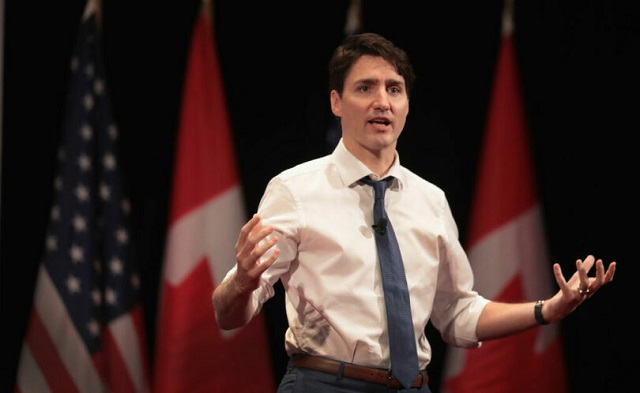
 National1 day ago
National1 day agoTrudeau’s 2024 budget includes $150 million to promote ‘2SLGBTQI+’ ideology at home and abroad
-
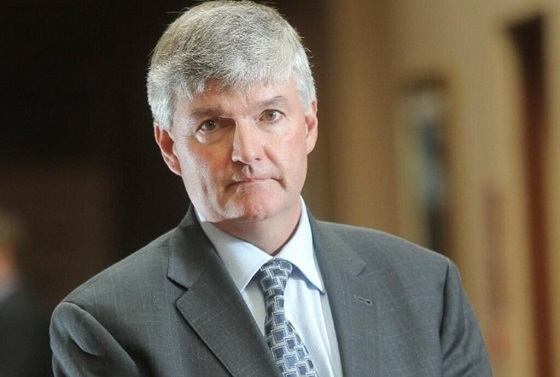
 Energy1 day ago
Energy1 day agoCanada Has All the Elements to be a Winner in Global Energy — Now Let’s Do It
-

 Opinion18 hours ago
Opinion18 hours agoFemale athletes are turning against gender-confused men dominating women’s sports
-
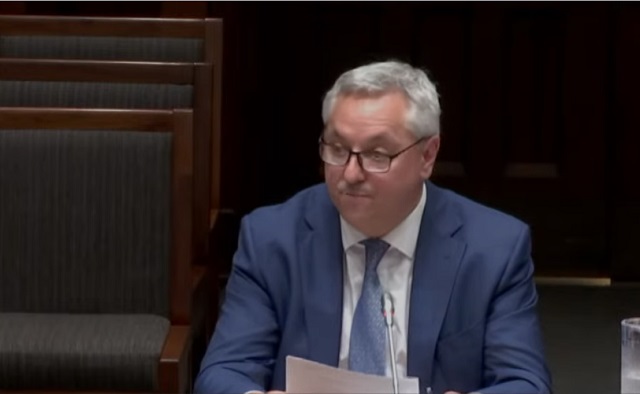
 espionage18 hours ago
espionage18 hours agoCanada’s intelligence chief says he personally warned Trudeau about China’s election meddling
-

 Censorship Industrial Complex11 hours ago
Censorship Industrial Complex11 hours agoScotland’s crazy anti-hate law may be sign of things to come here







